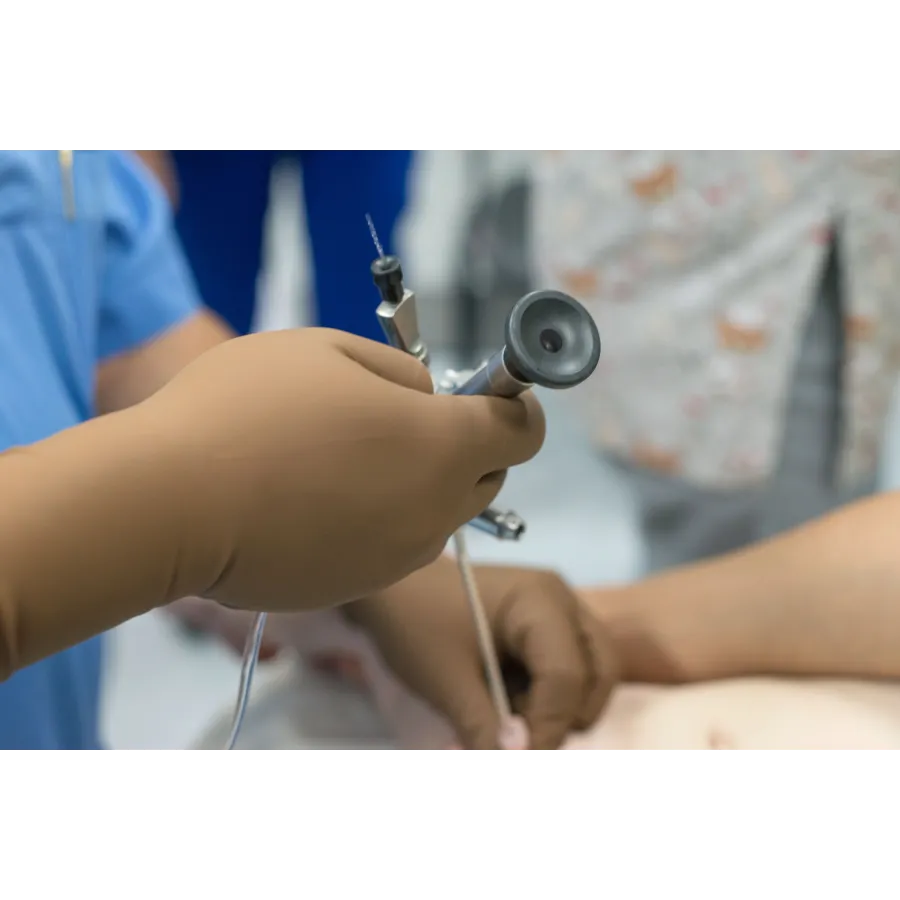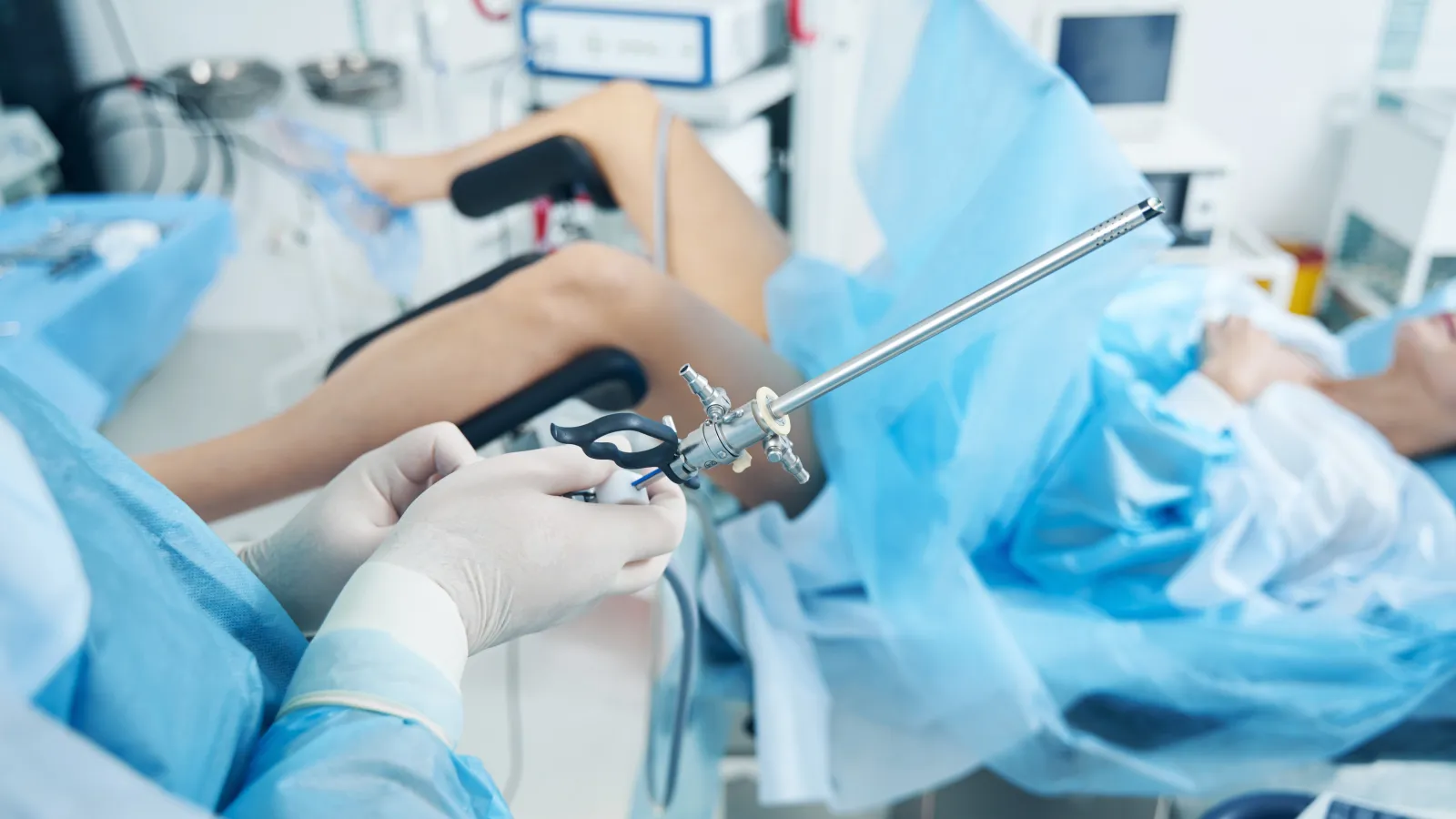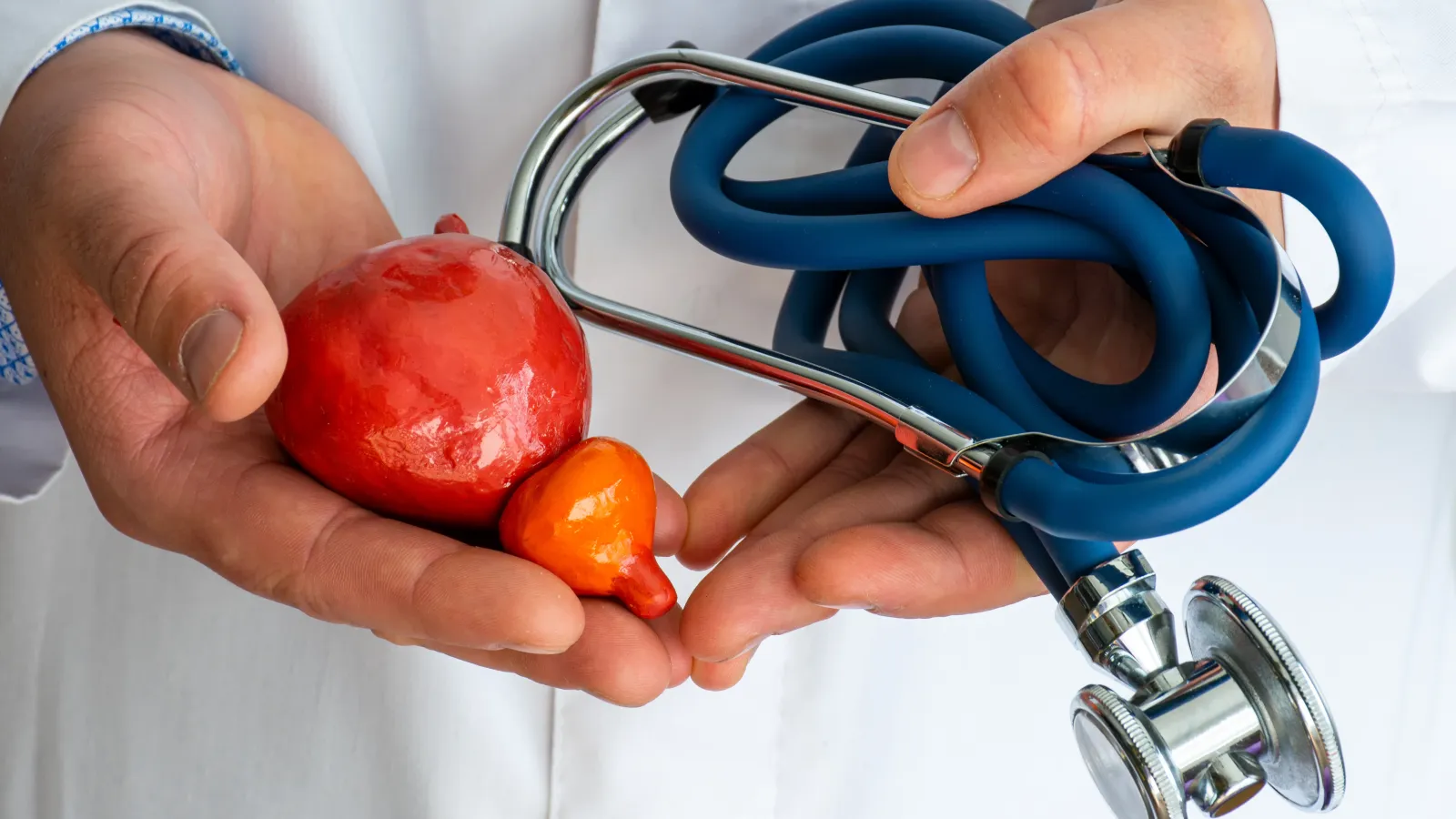Cystoscopy
Cystoscopy is a procedure that lets the doctor closely view the urinary system, specifically, the bladder and the urethra.
Why You Might
Need A Cystoscopy
And How Advanced Gynecology Can Help
If you have received an abnormal Pap test result and need further testing, Advanced Gynecology is here for you. Our board-certified team of women’s health experts are ready to help you with diagnostic care and a range of treatment options. We will counsel you about the best options for you and your health.

What is A Cystoscopy?
The apparatus used to perform a cystoscopy is called a cystoscope and is a long, flexible, tube with a light on the end. This device is inserted into the urethra and moved up into the bladder where a doctor can carefully inspect the inside of the urethra and bladder.
Additionally, the clinician performing the procedure can also wash the bladder and reach the walls of the bladder using instruments that are used through the scope and designed for this purpose. The doctor can even remove tissue for further testing or treat certain problems through the cystoscope during the procedure.

Why You Might Need a Cystoscopy
A cystoscopy allows your doctor to discover the cause of these irregularities. Cystoscopy may also be performed after gynecologic surgery near the bladder to check for proper placement of sutures and support devices.
Cancer or tumor of the bladder Polyps or overgrowths of normal tissue Bladder stones: calcium crystals that can lead to inflammation, bleeding, and blockages in the urinary tract. Scarred tissue and tissue damage caused by frequent urinary tract infections (UTIs) Abnormalities of the urinary tract that may be present at birth Injury of the urinary tract
Schedule Online
Potential Side Effects & Risk Factors for Cystoscopy
- Bleeding Infection
- Issues with fully voiding your bladder due to swelling
- Bladder perforation

How to Prepare for a Cystoscopy
Preparation for a cystoscopy is minimal. Depending on your personal health history and your specific condition, you may be asked to change your diet for a few days leading up to the procedure or told to fast altogether. Cessation of eating and drinking before the procedure will depend on the type of anesthetic used as well as your reaction to anesthetics.
Let your doctor know:
- If you are pregnant or think there is a chance you are pregnant.
- If you have any medication sensitivities or are allergic to any medications or substances, including latex, iodine, tape or anesthetics (local and general).
- Make sure you have an updated list that you have shared with your doctor of the medicines (including over-the-counter medicines), vitamins and supplements that you take.
- If you have a history of bleeding disorders or are taking any blood-thinning (anticoagulant) medicines, aspirin, or other medications that interfere with blood clotting.
- If you think you may have a urinary tract infection.
You will need to arrange to have someone drive you home after the procedure. You will be prescribed appropriate pain medication for any discomfort after the procedure.
After a cystoscopy, you can go back to your usual diet and activities unless your doctor has informed you otherwise. You should drink plenty of extra fluids to dilute the urine and reduce urinary discomfort. Any pain may also be eased through a sitz bath.
You may notice blood in the urine after a cystoscopy. This is normal and should clear up in a day or two. Contact your doctor if your symptoms continue or worsen.
Your doctor will give you specific instructions about fasting and any other particular dietary restrictions or diets you may need to follow before the procedure.